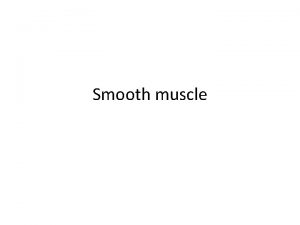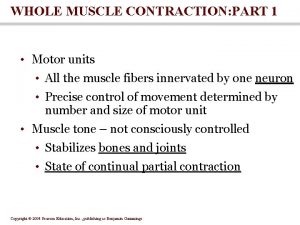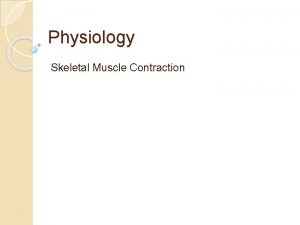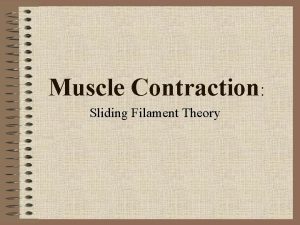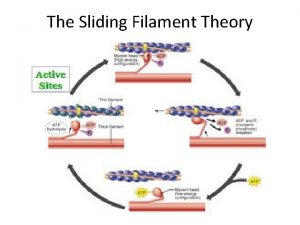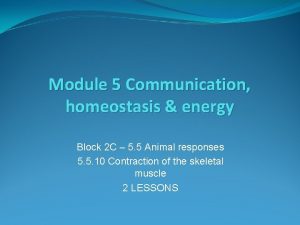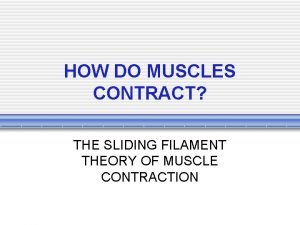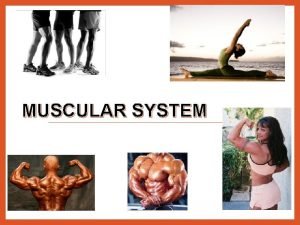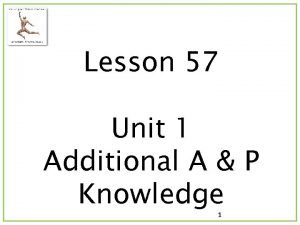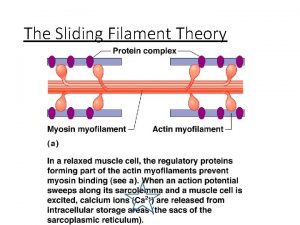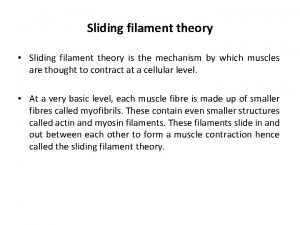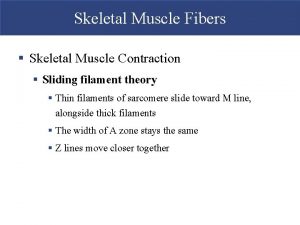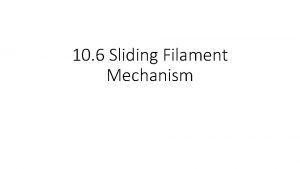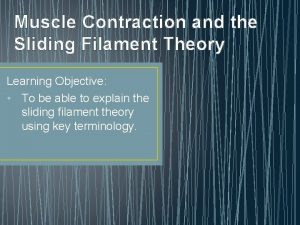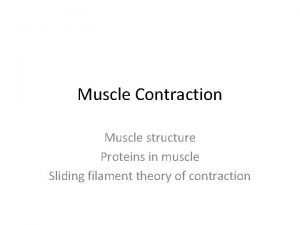Notes Sliding Filament Theory Muscle Contraction Physiology 1
![Notes: Sliding Filament Theory [Muscle Contraction Physiology] Notes: Sliding Filament Theory [Muscle Contraction Physiology]](https://slidetodoc.com/presentation_image_h/c6d0d20b157208fd1afdbc2ede47ba5a/image-1.jpg)









- Slides: 10
![Notes Sliding Filament Theory Muscle Contraction Physiology Notes: Sliding Filament Theory [Muscle Contraction Physiology]](https://slidetodoc.com/presentation_image_h/c6d0d20b157208fd1afdbc2ede47ba5a/image-1.jpg)
Notes: Sliding Filament Theory [Muscle Contraction Physiology]

(1) Muscle Contraction • Sliding Filaments = Muscle Contraction • The Basic Steps: 1 - Message sent 2 - Neurotransmitter 3 - Depolarization 4 - Calcium + Troponin = Actin Exposed 5 - Actin + Myosin (Contraction)

(2) Neuron Muscle (Muscle Fiber) • Cause: – Conscious decision to move – Homeostatic response • Nervous System Effector – Neurotransmitter released (ACh, acetylcholine) – ACh binds to sarcolemma of muscle fiber – ACh initiates opening of sodium-potassium channels

(3) Depolarization • Cause: – Binding of ACh to sodium-potassium channels – Opening of channels + Movement of Na-K+ across sarcolemma • Movement of Charges: – More Na+ moves in, Than K+ moves out – Imbalance of charges electrical current (action potential)

(4) Sarcoplasmic Reticulum Calcium • Cause: Depolarization • Action Potential releases Calcium: – Ca+ released from membrane of sarcoplasmic reticulum to sarcomere – Ca+ binds with troponin: • Troponin-Tropomyosion conformation changes • Troponin & Tropomyosin no longer cover Actin • Actin is exposed

(5) Myosin Actin • Cause: – Troponin & Tropomyosin unveils Actin – Actin exposed • Myosin releases Inorganic Phosphate + ADP – Pi + ADP = ATP – Myosin changes conformation – Myosin binds to Actin – Myosin and Actin slide towards each other – WE HAVE A CONTRACTION! WOO!

(6) Relaxation • ATP binds back with myosin… – Myosin detaches and moves away from Actin – Troponin & Tropomyosin cover up Actin – Ca+ moves back into Sarcoplasmic Reticulum – Repolarization Sarcolemma stable again

(7) Why is it called the Sliding Filament Theory? • Movement of myofilaments causes contraction • Myosin grabs actin & SLIDES them towards the center


(1 -2) Depolarization of Sarcolemma & Generation of Action Potential (3) Calcium Ions released from Sarcoplasmic Reticulum (10) Everything moves back & contraction done! (4 -6) Calcium binds to troponin, tropomyosin moves, actin exposed (9) Calcium removed by active transport (7 -8) Myosin attaches to actin, Myosin moves actin, ATP released
